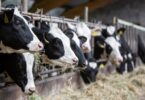A partnership between Emory University and UGA that plays a key role in the nation’s influenza research and surveillance programs has received a $3.6 million contract, with potential funding up to a total of $26.7 million available over seven years, from the National Institute of Allergy and Infectious Diseases.
The Emory-UGA Center of Excellence for Influenza Research and Surveillance originally was launched and funded in 2007, when the NIAID, part of the National Institutes of Health, created a network of six national centers.
The Emory-UGA CEIRS is led by principal investigator Dr. Walter Orenstein, a professor of medicine and associate director of the Emory Vaccine Center, and co-principal investigator Richard Compans, an Emory professor of microbiology and immunology. Ralph Tripp, a professor and chair of animal health vaccine development at the UGA College of Veterinary Medicine and a Georgia Research Alliance Eminent Scholar, is project leader at UGA, with co-project leader Mark Tompkins. Hualan Chen is project leader at the Harbin Veterinary Research Institute in China. A group of other researchers will lead individual cores and projects under the contract.
The Emory-UGA CEIRS will focus on surveillance of swine influenza viruses and investigations of swine immune responses to virus infection. With collaborators at the Harbin Veterinary Research Institute in China, animal surveillance efforts will include swine and poultry. Basic research projects at Emory-UGA CEIRS will include efforts to better understand the human immune response to influenza vaccination, including responses of pregnant women. Planned studies of long-lasting flu antibodies could aid in the development of influenza vaccines that would provide years-long immunity to multiple strains of flu.
“Our research team at UGA is excited to continue our multidisciplinary studies investigating the natural history of influenza virus in swine with our CEIRS and Emory colleagues, and swine industry partners,” Tripp said. “The objectives of the proposal address questions of substantial public health interest that include defining the overall prevalence and diversity of swine influenza viruses in pig populations in the U.S. and understanding the risk to humans. Our UGA research team has the resources, biosecurity facilities and acumen to address influenza virus replication and reassortment in swine and related animal models and develop disease intervention approaches to offset threats related to emerging influenza viruses.”
The CEIRS network conducts collaborative influenza research that is closely integrated with surveillance data from human and animal populations in the U.S. and around the world.







